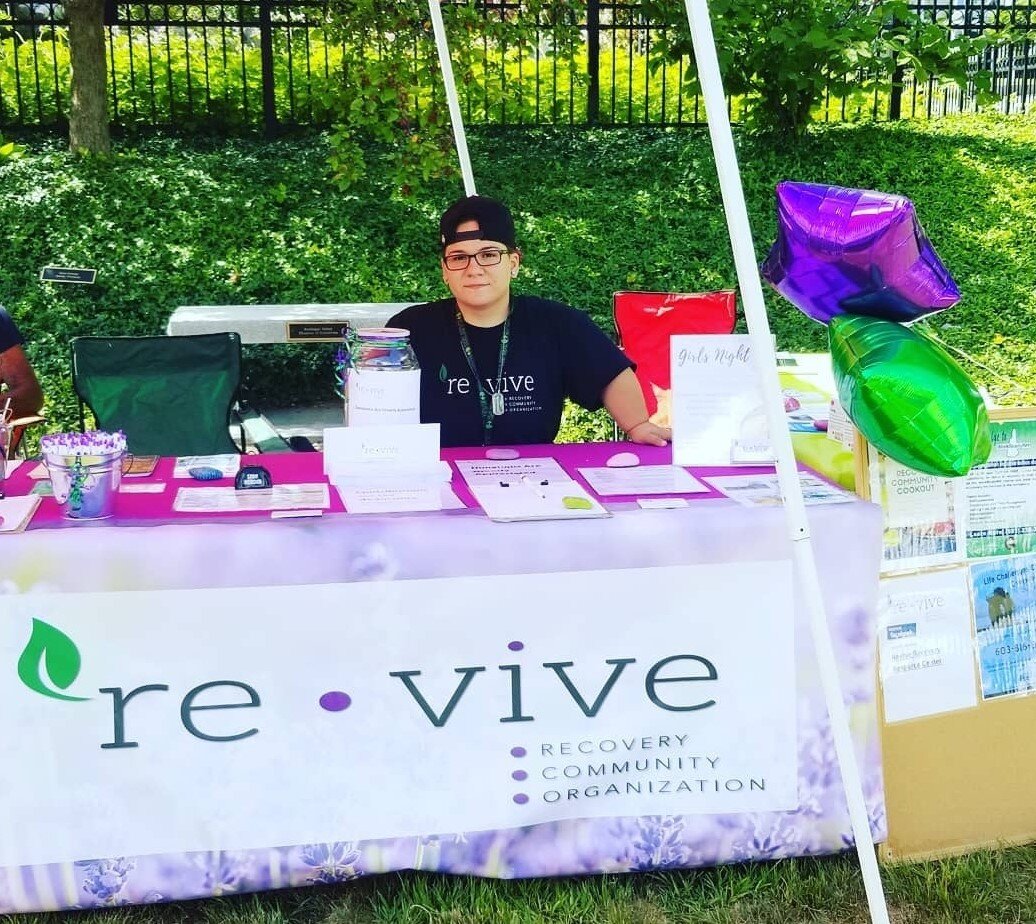Breaking Dependency: A Keystone Hall Recovery
Since she was a kid, Priscilla Matos never settled for what she had. She always craved more. When she was young, it was toys. Even though she had many to play with at home, she’d throw temper tantrums in the store if she didn’t get the new toy she wanted. As a teenager, the “more” she was chasing was substances.
“I was missing something when I was young and I didn’t know how to fill it, so I tried to fill it with things,” said Priscilla.
Today, Priscilla is in recovery and fills that space by serving to others. Through the AmeriCorps program, she is serving as a recovery coach and runs the Recovery Hub social media page at Revive Recovery Center on Main Street in Nashua. Priscilla came to Revive Recovery Center through the Hillsborough County Drug Court and eventually took classes to become a recovery coach. She pointed to Harbor Care for making her path from recovery to recovery coach possible.
“Harbor Care has helped so many people become recovery coaches,” she said. “It’s given someone whose done nothing in my life but sell drugs a chance to build a career. I finally fixed my internal karma and am making a difference in the world for the positive.”
From an early age, Priscilla felt like an outsider in her own home. Growing up in a traditional family, girls were expected to act a certain way, waiting on the boys in the family, and eventually getting married and having children.
“I knew I was gay and couldn’t be what my family wanted me to be and substances helped,” said Priscilla.
By age 13, Priscilla was regularly using drugs, including prescription pills, marijuana, psychedelics, and cocaine. Her use became more frequent and in greater quantities when she was 16, when she said drugs became something she needed.
“I used everything under the sun. It wasn’t anything specific. It was just I needed more,” Priscilla said. “I felt if I had substances in me and on me people would want to be my friend.”
To feed that desire to be around people and gain their approval, Priscilla began dealing drugs.
“It made me feel good to have a bunch of text messages when I woke up in the morning because people wanted their drugs,” she said. “I sold heroin, crack, Percocet. For a while I had everything. It made people need me and I loved it. It gave me a sense of power and control that at the time I needed.”
But selling drugs led to multiple arrests and eventually Drug Court. Enrolled in a three-year program, Priscilla at first played it cool.
“I remember the first eight months, I thought, “If I can just stay clean to get through the program, I can go use again. I thought I was being really smart,” she said. “Then one day when I was listening to the counselors and others in group tell their stories, I realized I was almost a year clean and my life was good. I had started to change my thinking and once I did, so many doors opened up for me.”
Priscilla began training to become a Certified Recovery Support Worker and learned the many different paths people can take on their journey to recovery. The two-week training includes classes on ethics, HIV/AIDS prevention, suicide prevention, and other harm reduction tactics. There is a certification test, required volunteer work, and 25 hours of supervised work in the field.
“Allies to recovery can learn a lot from these training and how to deal with people who are on different levels of recovery,” said Priscilla. “There are millions of people who never stepped into an AA or NA meeting who are now in recovery.”
It was only after getting into recovery that Priscilla learned that not all people arrested for drug offenses get to seek recovery through the Drug Court program. The opportunity was a gift, as were the many mentors who helped her along the way, she said. Through her work at Revive Recovery Center, she’s also discovered that helping others is helping her own recovery.
“The shame that comes with active use brings people down,” said Priscilla. “I was given the ability to build myself back up.”
For more information, go to https://www.harborcarenh.org/substance-use-services-index
For information on Recovery Community Centers, go to www.nhrecoveryhub.org


